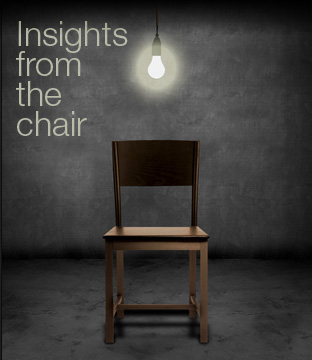The media pitch glitch

Enth Degree has managed many media pitches over the last few months across a broad range of marketers and product categories.
We have compiled the following observations, to hopefully assist Media Agencies provide their best opportunity to leave a positive impact during the pitch process.
This is not intended to be an article on “how to get the most out of the pitch process” but to provide some very simple observations for Agencies.
By sharing these observations with Agencies, we hope that our clients will benefit through more focussed and insightful proposals from contenders.
Don’t pitch if you don’t have time
There are many occasions where it is obvious the Agency has presented less than their best work. In the client debrief with those Agencies the usual comment in these cases is “we have been very busy and didn’t really have the time to put in our best effort.”
This is a terrible position to be in. You will never win. You have wasted your time. Furthermore the client now has a negative opinion of your Agency. Marketers will inevitably move to other companies, and take this impression to their next role.
If you can’t put in the time, decline to pitch.
The Introductions
Is there a more awkward moment than walking into a meeting room to be faced by a mix of known and unknown client stakeholders?
Some clients will be necessarily reserved, others effusive and excited. The handshakes and bonhomie will be determined by the client.
Enth Degree recommends you get straight into it. Idle small talk may put your team at ease, but we can assure the clients just want to get going. You will be one of a few they are seeing that day. They are not there to make new friends (yet).
Introduce your team formally at the start of the meeting. Also, hold off on the “fun facts you won’t know about us”… it is self-indulgent and doesn’t warm the client toward you.
“You breed Mexican walking fish? Good on you. Now, tell me how I can save my job by increasing sales!”
As an aside, the “thanks for a great brief, we had lots of fun working on this” is a statement made by 90% of Agencies (endless late nights and giving up weekends to work on a pitch is rarely “great fun”). Consider a more individual lead into your presentation.
Your introduction will set the tone of the meeting … keep tight, relevant and professional.
Ditch the Theatrics
If we want to be entertained, we will go to the theatre.
Presentation skills are obviously key to an engaging pitch. Setting a theme, relevant to the client’s business can be a good tactic.
However we have reached the stage where the theme can overshadow the purpose of the pitch.
We have had situations where the Agency has requested access to the meeting room the day prior to set up. In each case this has been an inconvenience to the client, and determines that the presentation better be worth it. (And usually it’s not!)
Good props won’t disguise a bad script, and can overshadow a good one!
It’s a Presentation Not a Shakespearean Play
While on the theatre analogy, please don’t teach your presenters to learn their script like they are on stage. It looks stilted, says they are not comfortable with their work, and when they inevitably stumble, forget, or freeze, it’s embarrassing for everybody.
Rehearse, but remember to relax and be real.
Data is not in your DNA
Clearly, neither is individuality. Clichés set you up to become bulldust bingo winners. There are only so many times you can drop the words “eco-system”, “unpack the brief”, and “bespoke” before someone screams bingo!
Media jargon and clichés do not resonate with clients. Talk the audience’s language, not your own.
It’s a Strategy, Not a Shopping List
It is only natural that Agencies want to showcase every idea and tactic that contribute to their strategic recommendations. This is desirable to differentiate your Agency.
However often in their zeal to do this, Agencies end up bombarding the audience with a bunch of non-cohesive ideas, leaving the client at a loss as to the role that each of these tactics has in the delivery of campaign objectives.
Marketers crave a response that identifies how each individual component will contribute to achieving campaign goals.
In a recent meeting, a “bespoke” tool presented by one Agency offered clients a unique opportunity to target potential customers. After only minor probing, we uncovered that this tool was in its very early stages of development and would make little to no real impact on potential results. This negative realisation overshadowed that tool’s future potential.
Validate your recommendations with their contribution to campaign success.
Sell your Ideas, Not Yourself
You don’t get much time in meetings to convince the client how good you really are. Often we see Agencies spending far too much of this limited resource talking about themselves. The client knows you are good, otherwise you would not have made it to the shortlist!
Your ideas, rationale and chemistry will determine whether you are a better choice than your competitors.
Sound obvious? We once witnessed an Agency allocate two thirds of their time talking about why they were the best option, before they had even mentioned the client’s brief.
Only your ideas will sell you, your opinion of yourself won’t.
Questions, Questions
Leave yourself time for questions. Sounds obvious but this is not a discipline practiced by all. This is your final opportunity to nail the business. Allocate who will address specific topics before the meeting.
You will have room full of subject matter experts from the Agency. Make sure they all get exposure. The client can then see the depth of talent on offer. Don’t let the over-zealous Agency CEO answer them all, or worse, interrupt. Nothing says we lack depth and I don’t trust my team, more than the Agency head hogging responses!
Finally, turn questions into engagement. Interpret the meaning behind the client’s question by turning the response into a discussion that identifies a problem to which you can provide a solution.
Your response to a client’s questions is the last opportunity to impress. (Your Mexican jumping fish will be long forgotten!)
Apart from the obvious impact of the calibre of the response, the above are the key observations we are sharing with Media Agencies.
Perhaps you have a contribution to this list? We welcome the opportunity to share your insights.

